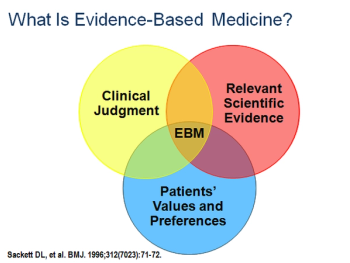
Catatonia-a syndrome of disturbed motor, mood, and systemic signs (eg, rigidity, immobility, mutism, staring, posturing, waxy flexibility, echopraxia, echolalia, and stereotypies)-has led to the clarification of its appropriate treatment.

Catatonia-a syndrome of disturbed motor, mood, and systemic signs (eg, rigidity, immobility, mutism, staring, posturing, waxy flexibility, echopraxia, echolalia, and stereotypies)-has led to the clarification of its appropriate treatment.

In the first of a two-part Special Report, the evaluation and management of psychosis is explored across a range of disorders and clinical contexts.

The first generation of cognitive-behavioral therapy for psychosis, when added to standard care, has demonstrated efficacy in treating patients with delusions and hallucinations. Details in this article.

Information from studies on adolescents with psychosis and a review of the evidence about the risk of suicide and suicidal behavior in this patient population.

"Psychosis Risk" can now be diagnosed as “Attenuated Psychosis Syndrome” and used to bill for insurance reimbursement. Many bearing the diagnostic label are young adolescents and adults in whom schizophrenia or any other psychotic disorder will never develop.

What percentage of patients with schizophrenia have a comorbid cannabis use disorder? Take the quiz and learn more.

At a moment when mental health is so much at the forefront of the minds of Americans and our media, it seems time, again, to try to understand the damaging views so commonly held about people with mental illness.

Johnson & Johnson and its subsidiaries will pay more than $2.2 billion to resolve criminal and civil liability arising from allegations relating to the prescription drugs Risperdal, Invega and Natrecor, including promotion for uses not approved as safe and effective by FDA and payment of kickbacks to physicians and to the nation’s largest long-term care pharmacy provider.

The authors evaluate the effects of nicotine and cannabis on neurocognitive function in individuals with schizophrenia and review potential pharmacological treatment strategies.

This member of the DSM-5 Work Group for Psychotic Disorders describes the 8 dimensions used to define the presentation of psychosis-the biggest and most clinically important of the changes in the schizophrenia and other psychotic disorders section.

You’ve come a long way, baby. But maybe not long enough, according to Dr Rajiv Tandon, who shared the evolution of schizophrenia diagnosis and highlighted the current status for attendees at the US Psychiatric and Mental Health Congress.

An exchange that contributes in some small way to greater interaction and synergy among all of us who are trying to do our part to relieve emotional and mental suffering.

How can you apply the framework and philosophy of evidence-based medicine to the use of antipsychotic medication? Here to discuss is Leslie L. Citrome, MD, MPH.

Most persons who use CAM modalities to self-treat a mental health problem take prescription antidepressants concurrently. Combined use can result in serious supplement-drug interactions.

What if someone with “prescriptive privileges” looked at superficial symptoms only, and ordered antipsychotics without considering the bigger picture?

How prevalent is schizophrenia? Take the quiz and learn more.

This article summarizes efforts to develop neurocognitive enhancement drugs administered individually or as an adjunct to other antipsychotics and cognitive remediation.

Obesity is one of the most common physical health problems in individuals with psychiatric conditions and contributes to excess medical morbidity and mortality. Several classes of psychotropic medications, particularly atypical antipsychotics, cause weight gain. While these issues pose challenges to optimal health, the good news is that there are solutions and emerging strategies.

Surprisingly, psychiatrists and psychiatric nurses “were just as likely” as their primary care counterparts to display negative biases toward individuals with schizophrenia seeking general medical care.

The aggregation of psychiatric diagnoses in individual psychiatric patients, ie, the presence of multiple disorders in one individual, is a curious and sometimes disturbing observation in psychiatry.

This article reviews some of the most recent findings in genetics and pharmacogenetics of schizophrenia-especially those with clinical implications.

Genetics seems to be a subject of particular interest for everyone. This article explores how the current state of knowledge regarding genetics might be used to help psychiatrists diagnose psychiatric disorders or predict their onset.

"Psychiatric diagnosis is certainly imperfect -- but so is much of diagnosis throughout medicine. And whatever the current limitations, psychiatric diagnosis is useful and essential. There are no 'paradigm shifts possible til we learn a lot more. To imply otherwise is misleading and confusing to patients."

Two problems persist in the treatment of severe mental illness that constitute a barrier to effective patient-centered care: excessive reliance on a limited number of antipsychotic medications at the expense of other effective treatments, and the underutilization of other evidence-based treatment options.

The flat out rejection of DSM-5 by National Institute of Mental Health is a sad moment for mental health--and an unsafe one for our patients. The APA and NIMH are both letting us down, failing to be safe custodians for the mental health needs of our country.